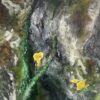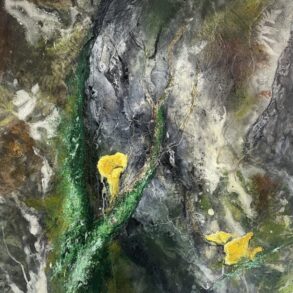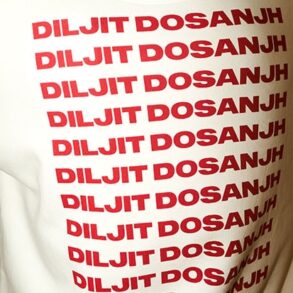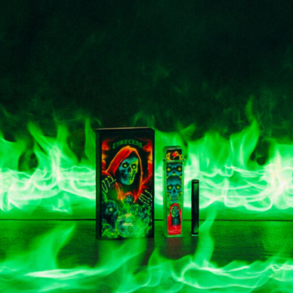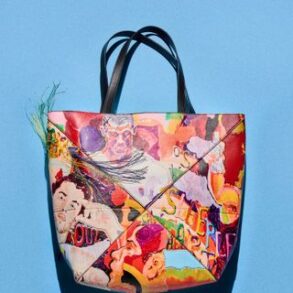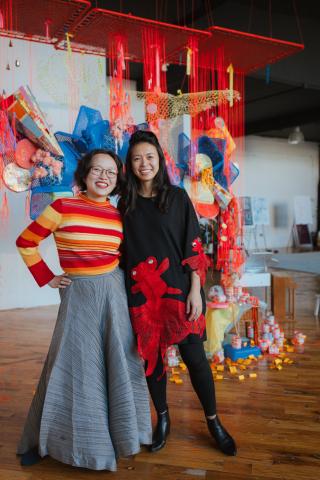
A musical banquet is being prepared at George Washington University by Ning Yu, associate professor of music and performance director of chamber ensembles, to be served at the
Corcoran Music Festival over three days beginning on Oct. 24. Yu joined the faculty of the Corcoran School of Arts and Design, part of GW’s Columbian College of Arts and Sciences (CCAS), in 2016.
A pianist who has performed widely with a diverse list of collaborators, Yu has been just as widely praised. Over much of the last year, she planned, curated and programmed the upcoming musical celebration.
Her first order of business, she said, was to settle on overall themes for the festival. She chose two: finding roots and collaboration. Then she set about inviting artists who embody these themes in performance.
“Collaboration is something that musicians are doing more and more these days,” Yu said. “The idea of being a solo artist is less and less appealing. Most people want to come together to contribute to a project they couldn’t do by themselves. I think collaboration brings out the best in all of us and makes us think in ways that we don’t think otherwise.”
Speaking of her own musical roots, Yu said she was born in a small city in China where her father couldn’t find a piano. After the family moved to a larger city, she began playing piano at the age of 5. The diverse group of performers she has invited to appear at the festival have explored their own roots in their work.
Students will be featured throughout the festival—an important festival goal, according to Loren Kajikawa, associate professor and head of the Music Program.
“Corcoran students from multiple programs are involved in all three days of the festival,” Kajikawa said, “collaborating with faculty, staff and the featured musicians, or as performers themselves.”
The first evening of the musical banquet will feature a performance by Shana Mashego, visiting assistant professor of African American music.
“She has been a wonderful presence in the Music Program, and students love her,” Yu said. “She has done so much as a scholar and performer for spirituals, which are part of who she is. She learned spirituals from her grandmother, and they made a great imprint.”
In collaboration with scholar John Michael Cooper, a professor of music at Southwestern University, and accompanied by Patrick Merrill, professorial lecturer in music, on piano, Mashego will be performing for the first time a group of spirituals recently recovered from the past.
Salar Nader, a tabla virtuoso, and Homayoun Sakhi, a master of the Afghan rubab, will perform music highlighting their roots in Afghanistan. The festival’s first evening concludes with AtlanticUS, a jazz ensemble featuring saxophonist Peter Fraize, who teaches in the Music Program at GW, with British musicians Terry Seabrook (organ), Jack Kendon (trumpet) and Milo Fell (drums), performing “Oceanic,” a musical suite with accompanying video by Rikki Borkum exploring themes of sustainability and the effects of pollution on the world’s oceans.
The festival’s second evening begins with a presentation of collaborative projects designed by GW students from many disciplines, followed by a party in the North Atrium of the Flagg Building. There will also be a performance by Matmos, an internationally known experimental electronic music duo based in Baltimore.
Another duo performance will start the festival’s third evening, when Dorothy Chan and Lucy Yao, collectively known as Chromic Duo, will present “From Roots We Carry,” a work “which confronts the complexities of inheritance, intergenerational healing and sacrifice,” according to promotional materials. The work of Chromic Duo incorporates prepared piano and interweaves other art forms.
“Dorothy lives in D.C., and Lucy lives in New York City,” Yu said. “These collaborators travel to visit each other for their rehearsals, and they travel all over to present their works. Their duo is very much a multimedia set-up.”
After their performance, which is sponsored by the CCAS Chinese Arts and Humanities Initiative, the Chromic Duo will engage audience members in a question-and-answer session.
“They were really keen on doing a Q & A,” Yu said. “The current plan is for students from the multidisciplinary collaboration class to lead the Q & A session. The Chromic Duo is very interested in nontraditional performance settings. They don’t want chairs. They don’t care if people go in and out or get really close to them or go far away to listen to the sound.”
The festival’s last performance will be by the experimental TAK Ensemble with Eric Wubbels, presenting “Interbeing,” a work that combines concert music with music-theater. They have asked Yu to organize two groups of student volunteers to join them in performance.
“One group of students will be playing small percussion instruments to the pace of their heart rate,” Yu said. “Another group of students will bring their instruments, such as string instruments or wind instruments, will be selecting a pitch and then playing this one pitch that they have chosen for the duration of the piece.”
To conclude the third evening’s festivities, TAK Ensemble and Wubbels, a composer whose music they will perform, will be hosting a reception with locally sourced refreshments.
“Everything at the festival will be delicious,” Yu said.
The festival schedule may be viewed online. Admission to all festival events is free, but please register to attend.

